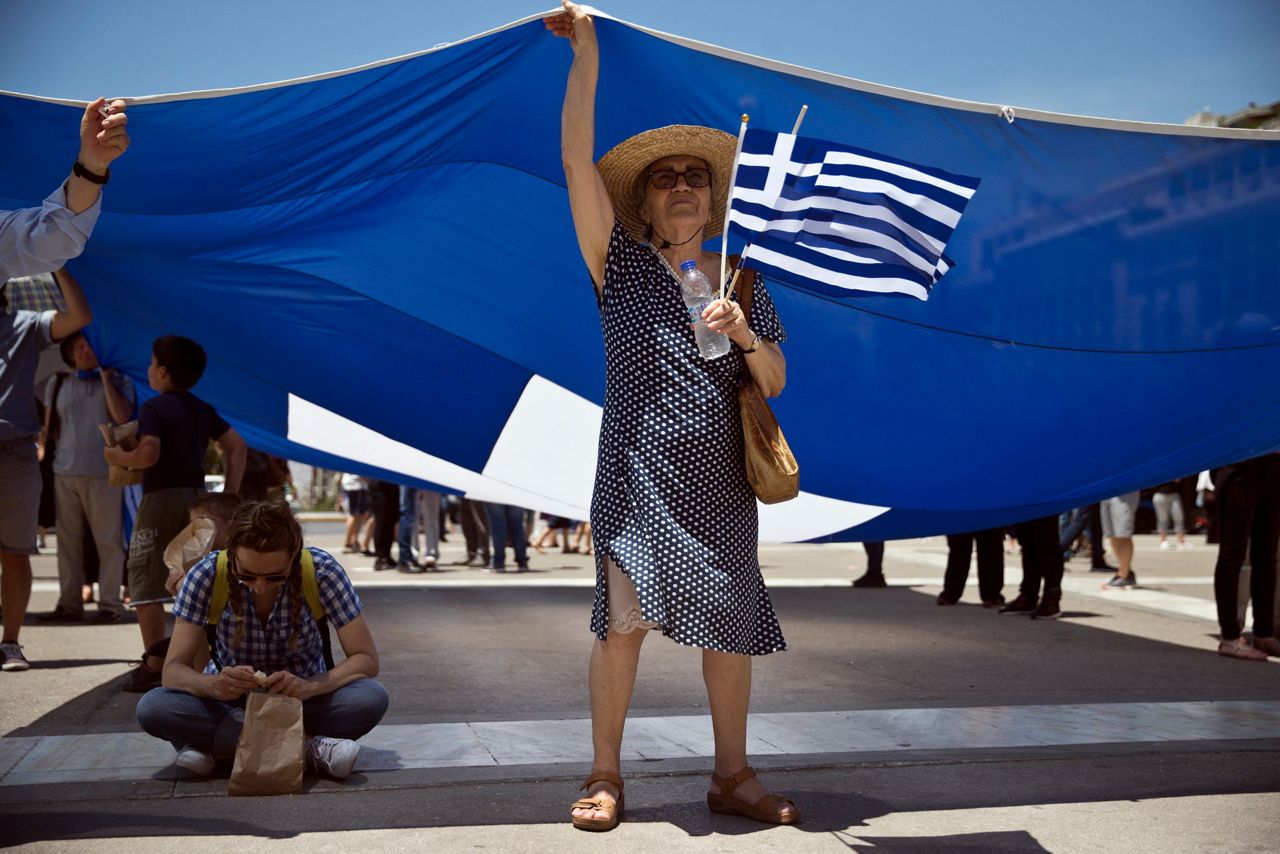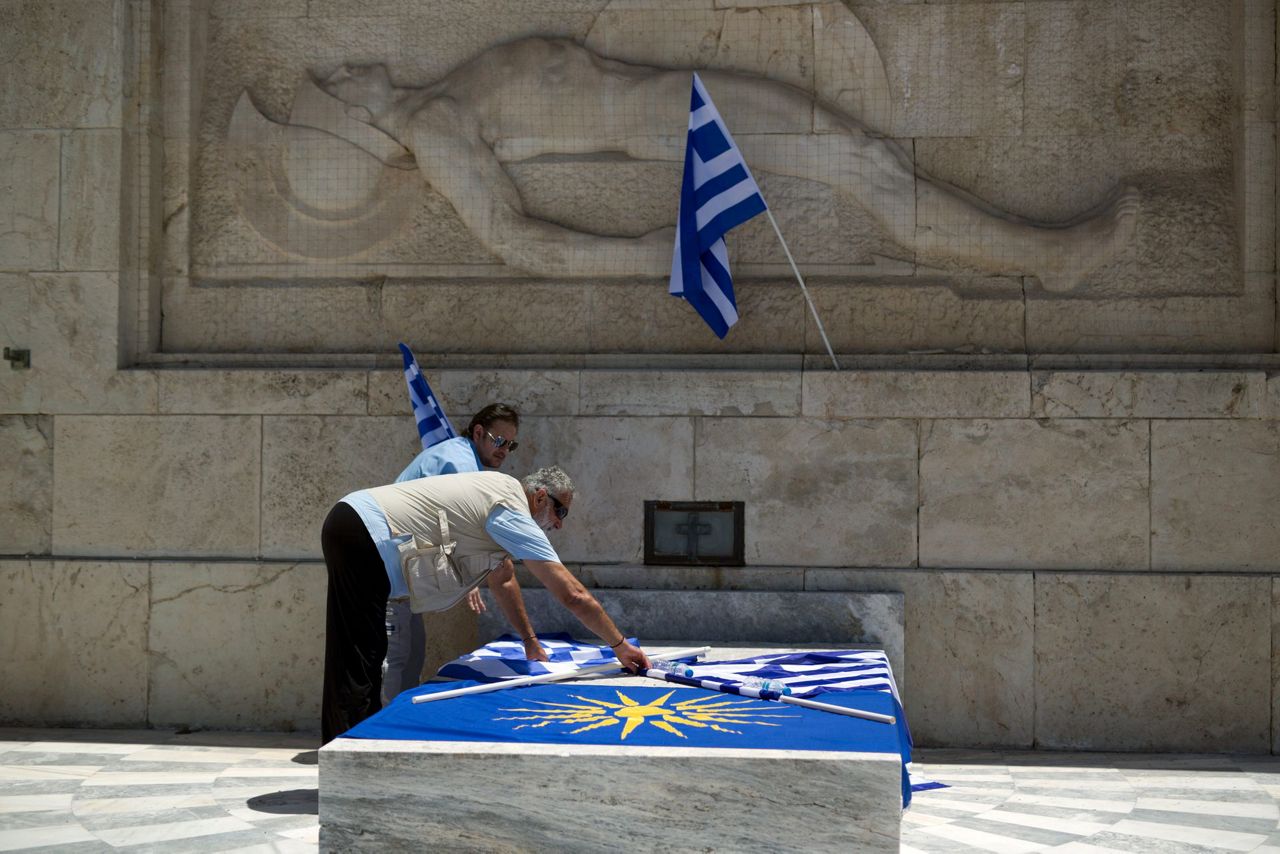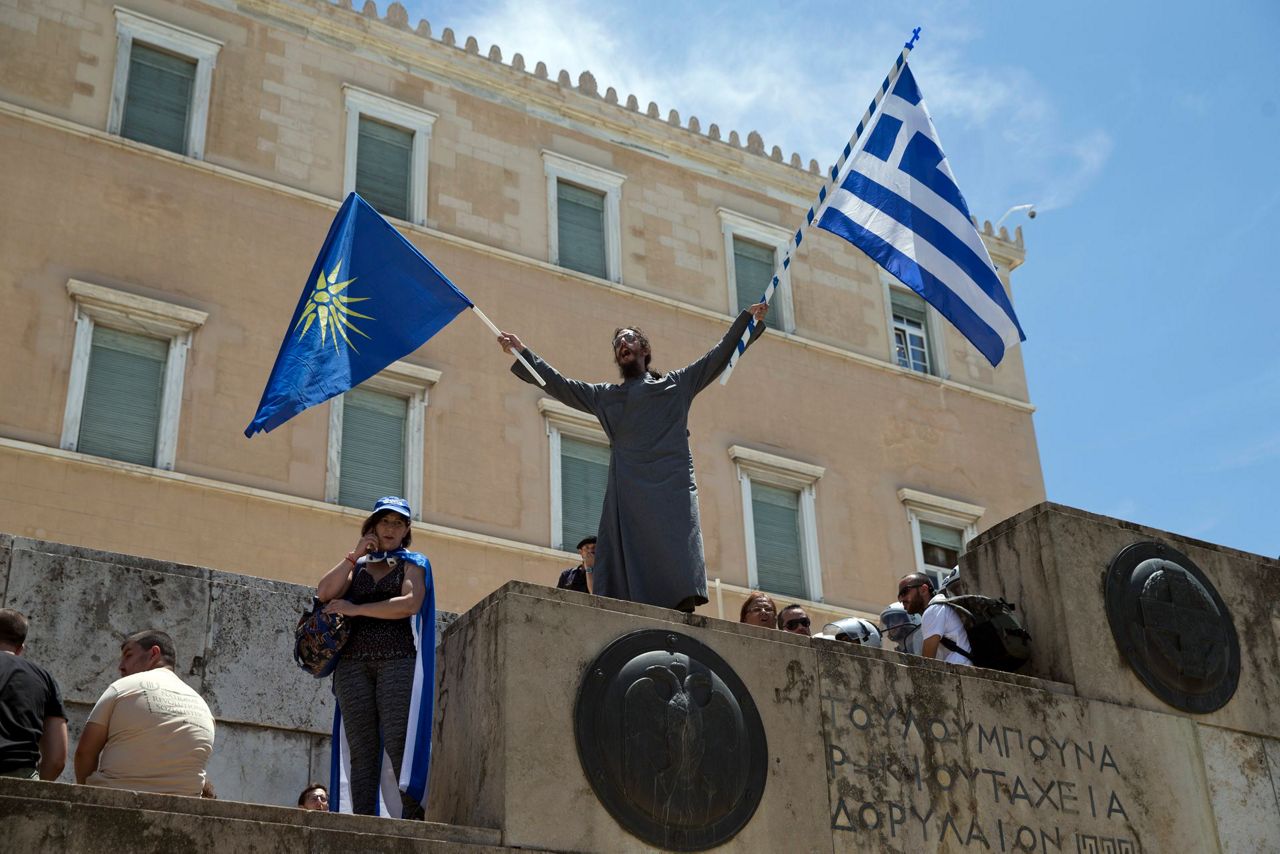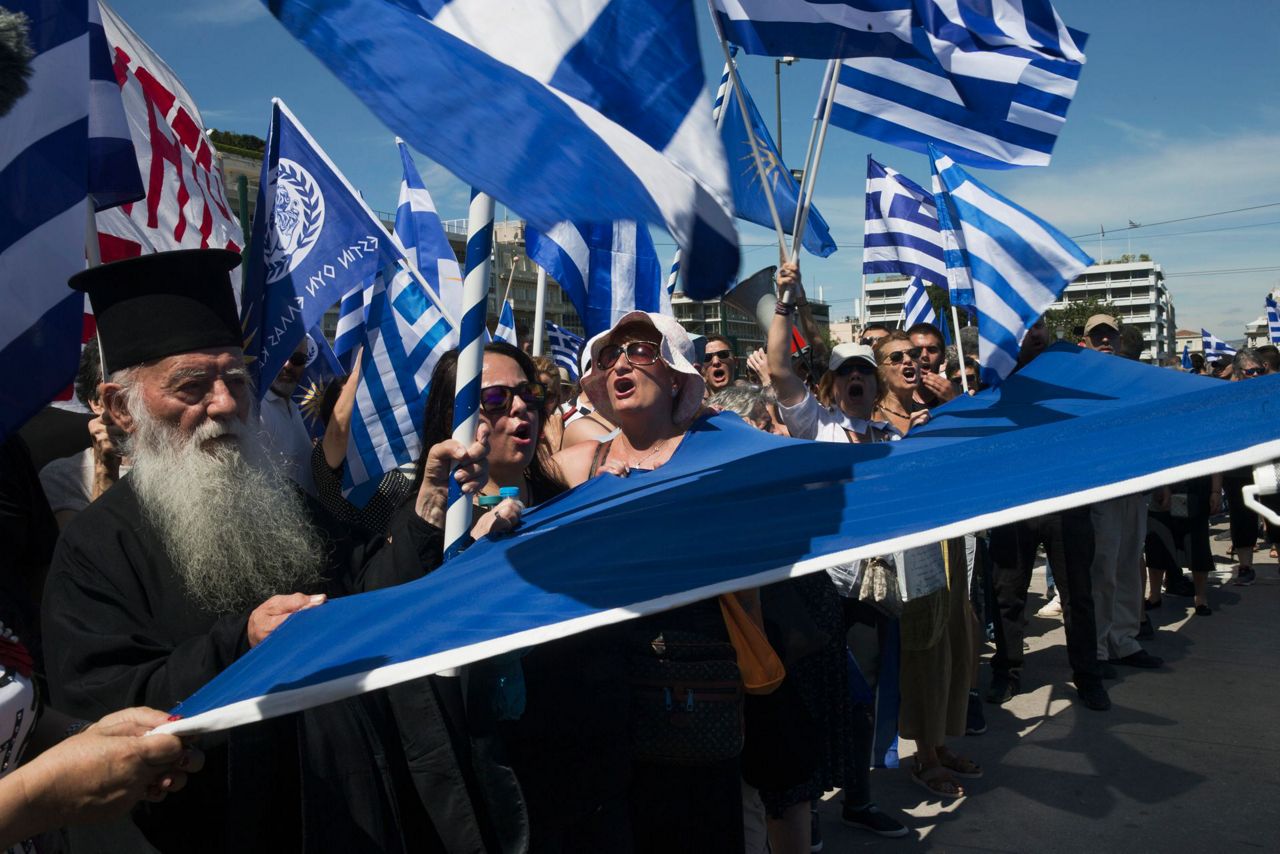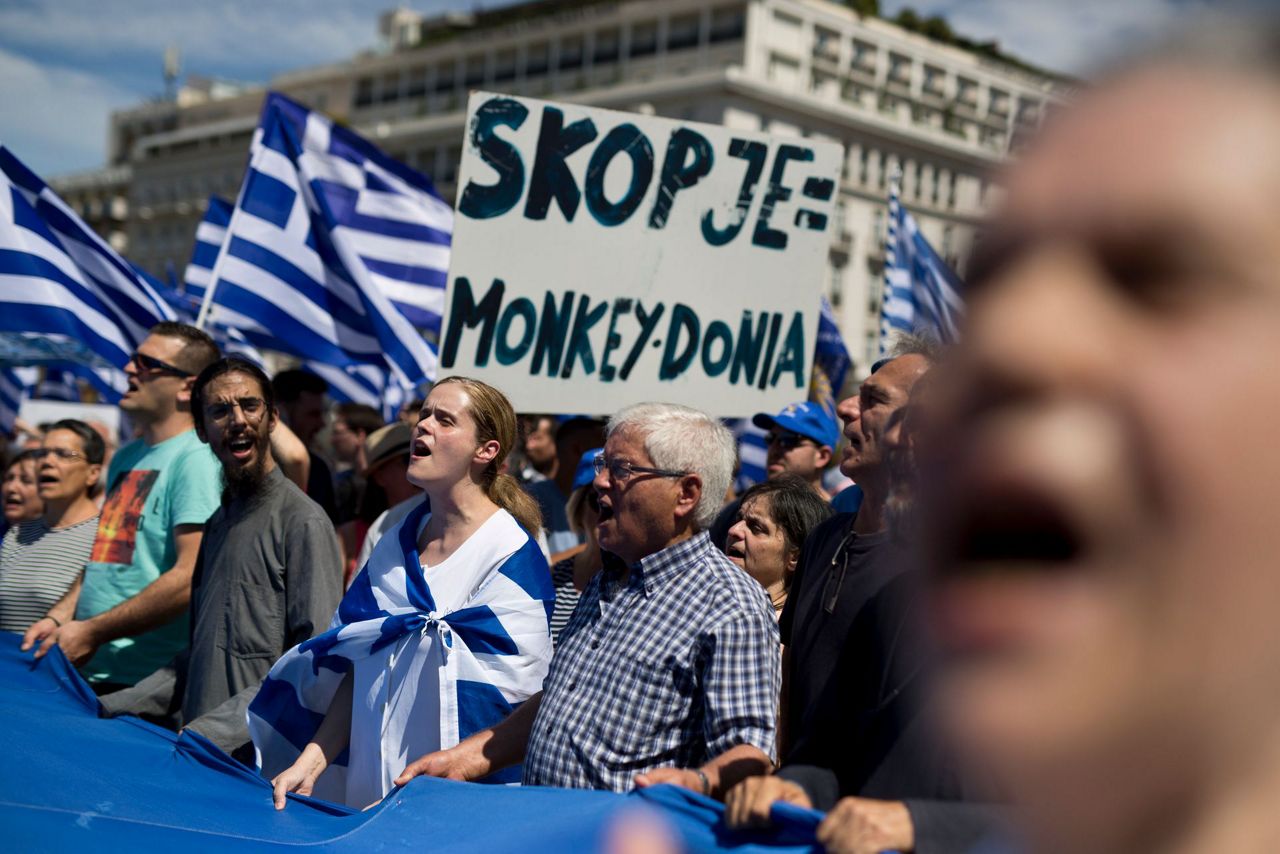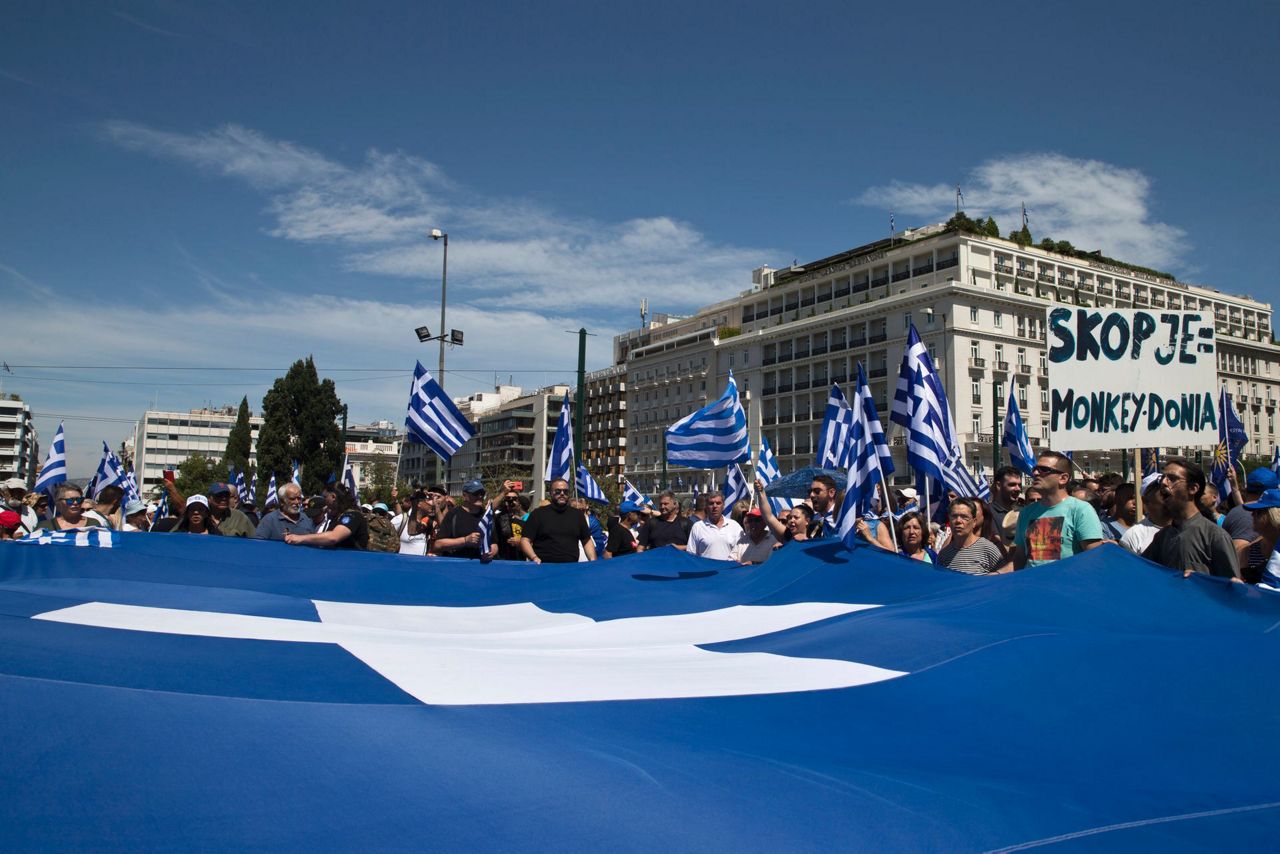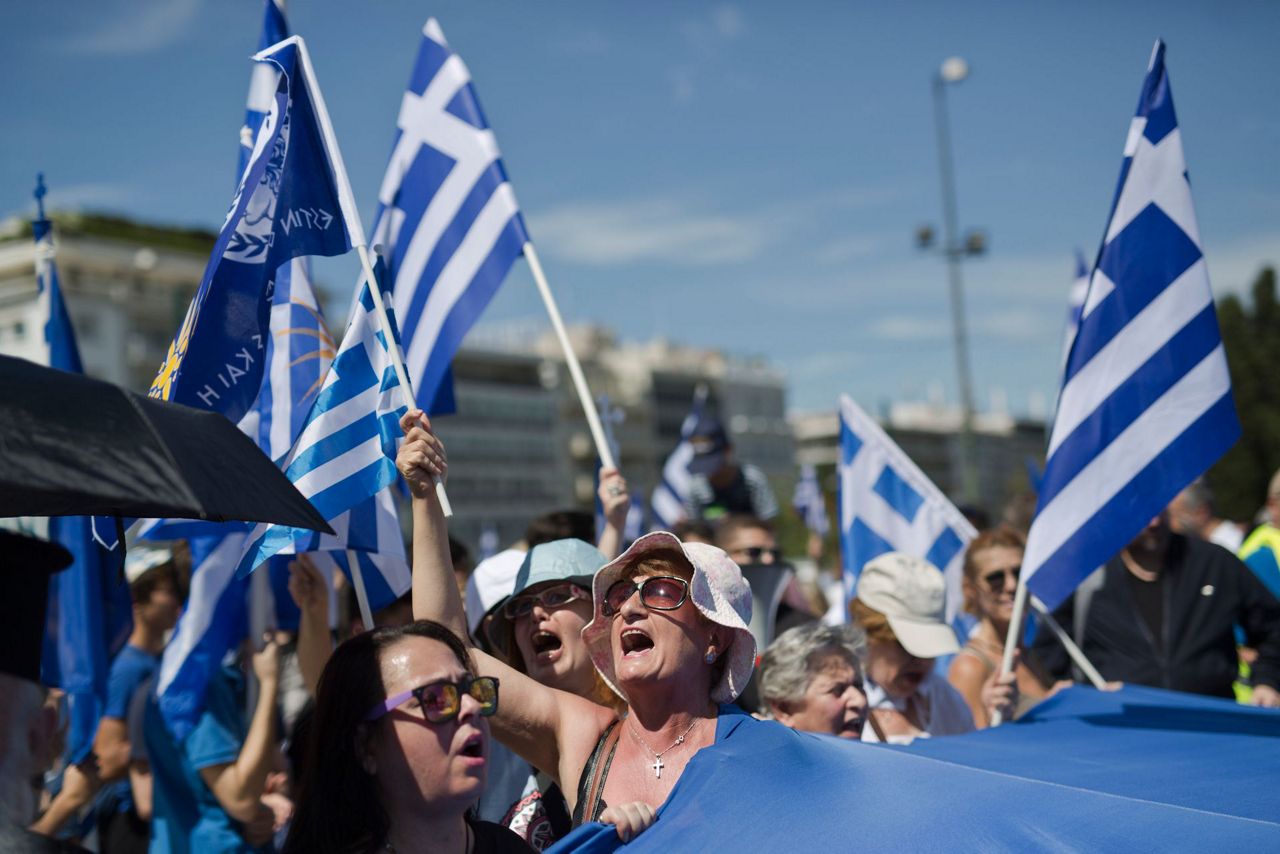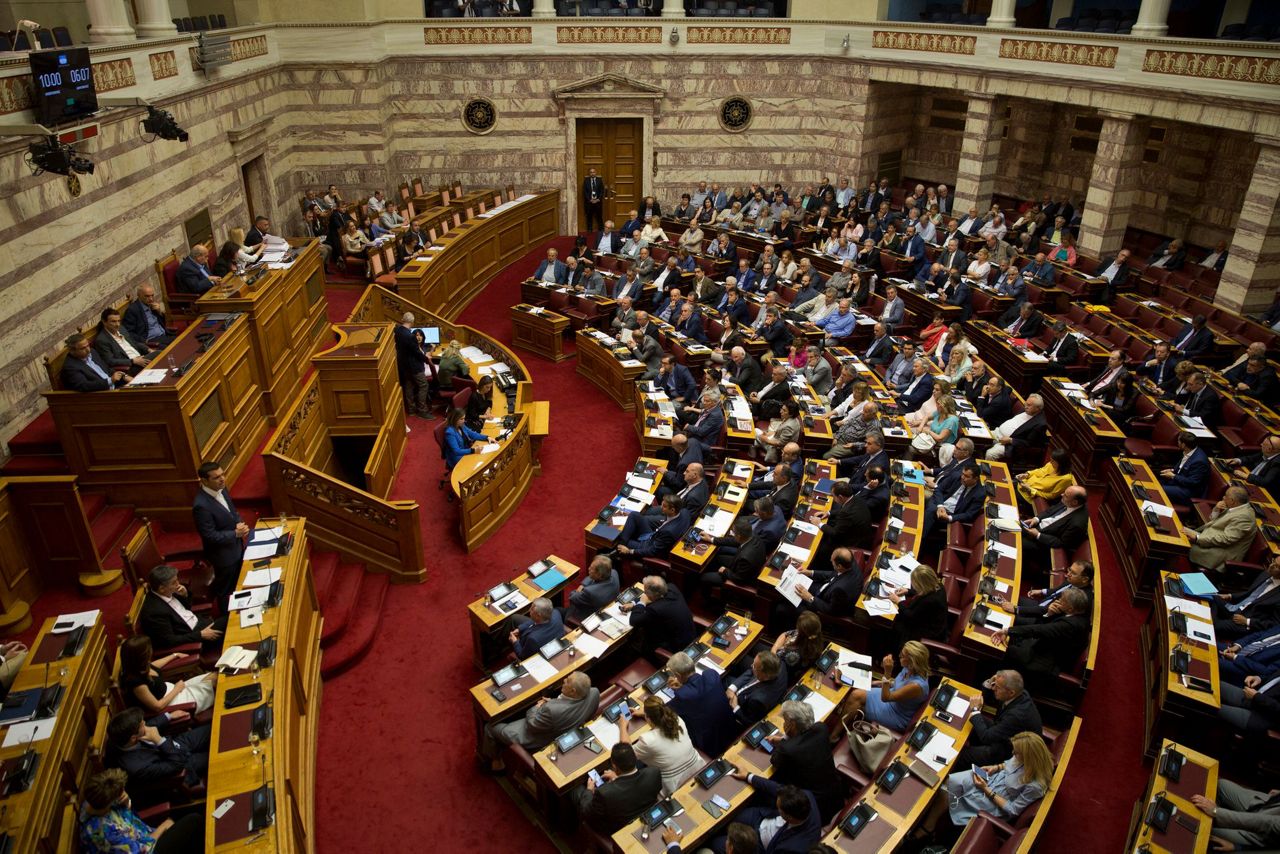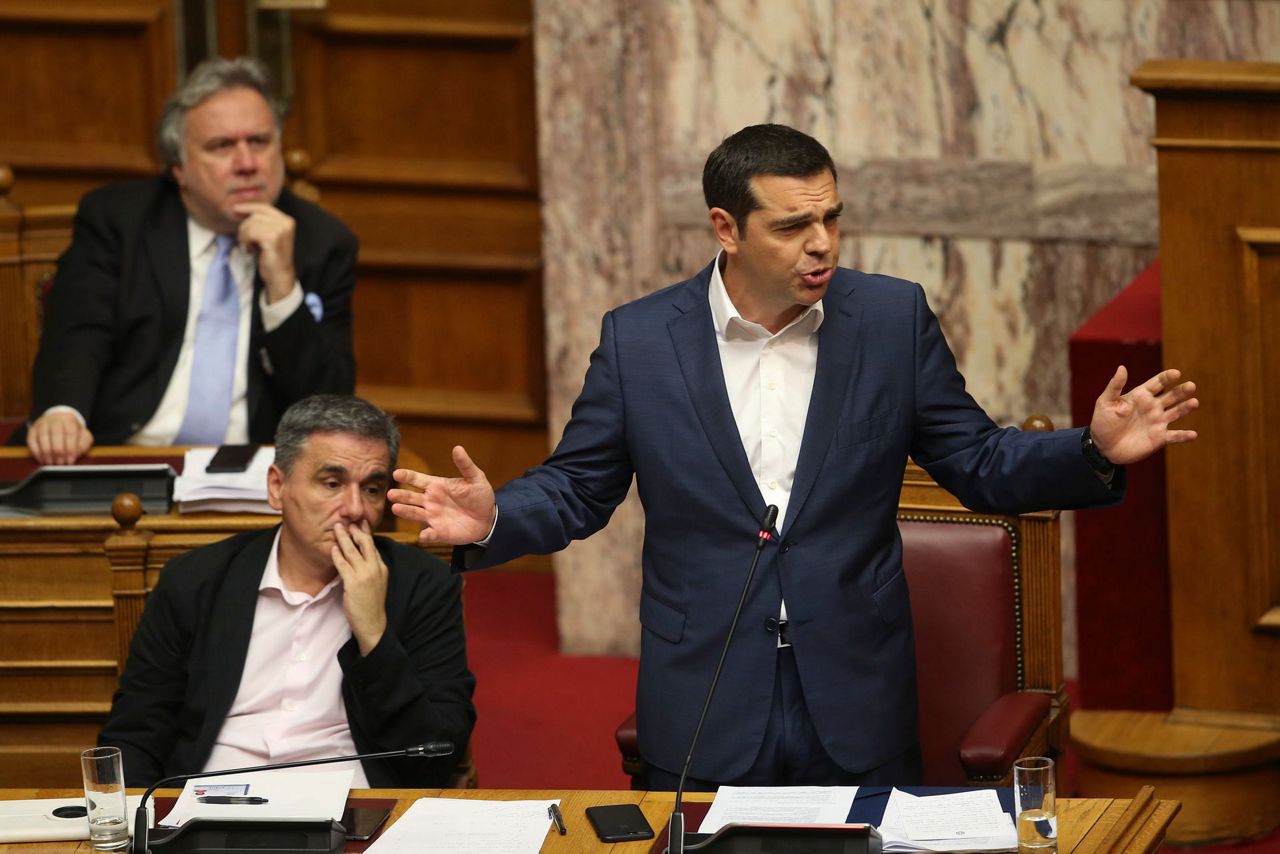ATHENS, Greece (AP) — Greek lawmakers debated a no-confidence motion against the government Friday over its tentative agreement to end a decades-old dispute with neighboring Macedonia over that country's name.
Prime Minister Alexis Tsipras' left-led government is expected to easily survive the vote set for Saturday. His governing coalition controls 154 of the 300 seats in parliament, and the nationalist party that is a junior partner in the ruling coalition says it will reject the motion even though it opposes the agreement Tsipras struck.
"We back the government . and its work, until it is brought to completion," Independent Greeks party lawmaker Maria Kollia Tsarouha said Friday.
Outside parliament in central Athens, a few hundred people protested the deal, which would rename Greece's small northern neighbor North Macedonia in exchange for Greece dropping its objection to Macedonia joining NATO and the European Union.
The demonstrators waved Greek flags and shouted slogans accusing the government of treasonous behavior. But the turnout was a far cry from a previous rally that drew more than 100,000 people to the same spot earlier this year. A smaller protest was held later Friday.
The agreement has angered hardliners and nationalists on both sides of the border who feel their countries have made too much of a concession to the other.
A preliminary agreement will be signed Sunday by the two countries' foreign ministers in the Prespa Lakes region on the Greek-Macedonian border, launching a ratification process that will last for months, officials in Athens said.
Tsipras and Macedonian Prime Minister Zoran Zaev will attend the ceremony on the Greek side before crossing to Macedonia for lunch. More protests are planned for Sunday in the Prespa Lakes area.
In Macedonia, implementation of the deal has to clear the hurdles of parliamentary ratification, a referendum in September and a constitutional amendment. Opponents of the name-change include the conservative opposition party, VMRO-DPMNE, and the country's president Gjorge Ivanov, who has said he would not sign off on the agreement.
In Greece, the deal only faces ratification in parliament once Macedonia has performed all of its part of the process. However, Tsipras' left-led government faces a complex challenge as its junior coalition partner, the Independent Greeks, vehemently opposes the deal.
"We won't support any agreement (on Macedonia's name) like this when it comes up for ratification," Kollia Tsarouha, a deputy interior minister for the northern Greek provinces of Macedonia and Thrace, said.
Greece's conservative opposition party, New Democracy, took the opportunity to call a no-confidence vote over the name deal, hoping to exploit the rift and topple Tsipras' government.
Friday's often tense debate was disrupted by an extreme right-wing lawmaker calling on the country's military to arrest top government officials for backing the deal.
The lawmaker, from the Nazi-inspired Golden Dawn party, was evicted from the debate together with the rest of the party's lawmakers. Golden Dawn expelled him from the party and a prosecutor later in the day charged him with committing preparatory acts for high treason.
The dispute between the two Balkan neighbors started after Macedonia gained independence from the former Yugoslavia in 1991. Greece argued that the name "Macedonia" implied territorial claims on its province of the same name, which is the birthplace of the ancient warrior king Alexander the Great, and usurped its ancient Greek heritage and history.
The dispute lurched through repeated rounds of United Nations-mediated negotiations for years. A breakthrough was reached after a change of government in Macedonia, with Zaev taking over last year following a decade of rule by conservative Nikola Gruevski.
Copyright 2018 The Associated Press. All rights reserved. This material may not be published, broadcast, rewritten or redistributed.



